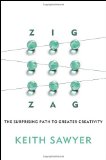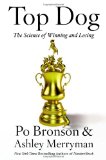March 20, 2013

Pieces of Light: How the New Science of Memory Illuminates the Stories We Tell About Our Pasts by Charles Fernyhough (Harper, 2013)
(amazon.co.uk)
Book description from the publisher:
Leading psychologist Charles Fernyhough blends the most current science with literature and personal stories in Pieces of Light: How the New Science of Memory Illuminates the Stories We Tell About Our Pasts.
A new consensus is emerging among cognitive scientists: rather than possessing fixed, unchanging memories, they have found that we create recollections anew each time we are called upon to remember. According to psychologist Charles Fernyhough, remembering is an act of narrative imagination as much as it is the product of a neurological process.
An NPR and Psychology Today contributor, Dr. Fernyhough guides readers through the fascinating new science of autobiographical memory, covering topics such as: navigation, imagination, and the power of sense associations to cue remembering. Exquisitely written and meticulously researched, Pieces of Light brings together science and literature, the ordinary and the extraordinary, to help us better understand our powers of recall and our relationship with the past.
See also: Author’s website
Comments (0)
- cognitive science,new books,psychology
March 19, 2013

Zig Zag: The Surprising Path to Greater Creativity by Keith Sawyer (Jossey-Bass, 2013)
(kindle ed.), (amazon.co.uk)
Book description from the publisher:
A science-backed method to maximize creative potential in any sphere of life
With the prevalence of computer technology and outsourcing, new jobs and fulfilling lives will rely heavily on creativity and innovation. Keith Sawyer draws from his expansive research of the creative journey, exceptional creators, creative abilities, and world-changing innovations to create an accessible, eight-step program to increasing anyone’s creative potential. Sawyer reveals the surprising secrets of highly creative people (such as learning to ask better questions when faced with a problem), demonstrates how to come up with better ideas, and explains how to carry those ideas to fruition most effectively.
This science-backed, step-by step method can maximize our creative potential in any sphere of life.
- Offers a proven method for developing new ideas and creative problem-solving no matter what your profession
- Includes an eight-step method, 30 practices, and more than 100 techniques that can be launched at any point in a creative journey
- Psychologist, jazz pianist, and author Keith Sawyer studied with world-famous creativity expert Mihaly Csikszentmihalyi
Sawyer’s book offers a wealth of easy to apply strategies and ideas for anyone who wants to tap into their creative power.
Google Books preview:
See also: Author’s blog
Comments (0)
- new books,psychology
March 13, 2013

One Nation Under Stress: The Trouble with Stress as an Idea by Dana Becker (Oxford University Press, USA, 2013)
(amazon.co.uk)
Book description from the publisher:
Stress. Everyone is talking about it, suffering from it, trying desperately to manage it-now more than ever. From 1970 to 1980, 2,326 academic articles appeared with the word “stress” in the title. In the decade between 2000 and 2010 that number jumped to 21,750. Has life become ten times more stressful, or is it the stress concept itself that has grown exponentially over the past 40 years?
In One Nation Under Stress, Dana Becker argues that our national infatuation with the therapeutic culture has created a middle-class moral imperative to manage the tensions of daily life by turning inward, ignoring the social and political realities that underlie those tensions. Becker shows that although stress is often associated with conditions over which people have little control-workplace policies unfavorable to family life, increasing economic inequality, war in the age of terrorism-the stress concept focuses most of our attention on how individuals react to stress. A proliferation of self-help books and dire medical warnings about the negative effects of stress on our physical and emotional health all place the responsibility for alleviating stress-though yoga, deep breathing, better diet, etc.-squarely on the individual. The stress concept has come of age in a period of tectonic social and political shifts. Nevertheless, we persist in the all-American belief that we can meet these changes by re-engineering ourselves rather than tackling the root causes of stress.
Examining both research and popular representations of stress in cultural terms, Becker traces the evolution of the social uses of the stress concept as it has been transformed into an all-purpose vehicle for defining, expressing, and containing middle-class anxieties about upheavals in American society.
Google Books preview:
Comments (1)
- culture,new books,psychology
March 5, 2013

Creative Intelligence: Harnessing the Power to Create, Connect, and Inspire by Bruce Nussbaum (HarperBusiness, 2013)
(kindle ed.), (amazon.co.uk)
Book description from the publisher:
Offering insights from the spheres of anthropology, psychology, education, design, and business, Creative Intelligence by Bruce Nussbaum, a leading thinker, commentator, and curator on the subjects of design, creativity, and innovation, is first book to identify and explore creative intelligence as a new form of cultural literacy and as a powerful method for problem-solving, driving innovation, and sparking start-up capitalism.
Nussbaum investigates the ways in which individuals, corporations, and nations are boosting their creative intelligence — CQ—and how that translates into their abilities to make new products and solve new problems. Ultimately, Creative Intelligence shows how to frame problems in new ways and devise solutions that are original and highly social.
Smart and eye opening, Creative Intelligence: Harnessing the Power to Create, Connect, and Inspire illustrates how to connect our creative output with a new type of economic system, Indie Capitalism, where creativity is the source of value, where entrepreneurs drive growth, and where social networks are the building blocks of the economy.
Comments (0)
- cognitive science,new books,psychology
February 19, 2013

Top Dog: The Science of Winning and Losing by Po Bronson and Ashley Merryman (Twelve, 2013)
(kindle ed.), (amazon.co.uk)
Book description from the publisher:
It’s a Dog Eat Dog World. Don’t Be on the Menu.
What are the differences between a winning and losing performance? Why are we able to rise to the challenge one day, but wilt from it the next? Can we in fact become better competitors? In TOP DOG, Po Bronson and Ashley Merryman use cutting edge science to tease out the hidden factors at the core of every great triumph – and every tragic failure. By enabling you to identify your own competitive style, TOP DOG will help you tip the odds of success in your favor. Integrating wisdom from politics, finance, genetics, neuroscience, psychology, military training, sports, economics, education and more, TOP DOG offers counterintuitive, game-changing insights into the nature of competition, such as:
- Why the home field advantage in sports is just as relevant in diplomacy and deal-making
- That women are better at judging risk, while men are better at ignoring it – and how this plays out on K Street and Wall Street
- Why younger siblings are more competitive than first-borns, and how early-childhood influences shape competitive styles forever
- That the shape of entrepreneurs’ hands can be just as revealing as their business plans
- How a single biochemical can predict a winner before an event has even begun
- Why discord can be better than harmony, and why stars on a team do deserve special treatment.
As President Dwight Eisenhower said, “What counts is not necessarily the size of the dog in the fight-it’s the size of the fight in the dog.” In TOP DOG, Po Bronson and Ashley Merryman reveal the size of the fight in all of us.
See also: Book website
Comments (0)
- cognitive science,new books,psychology







